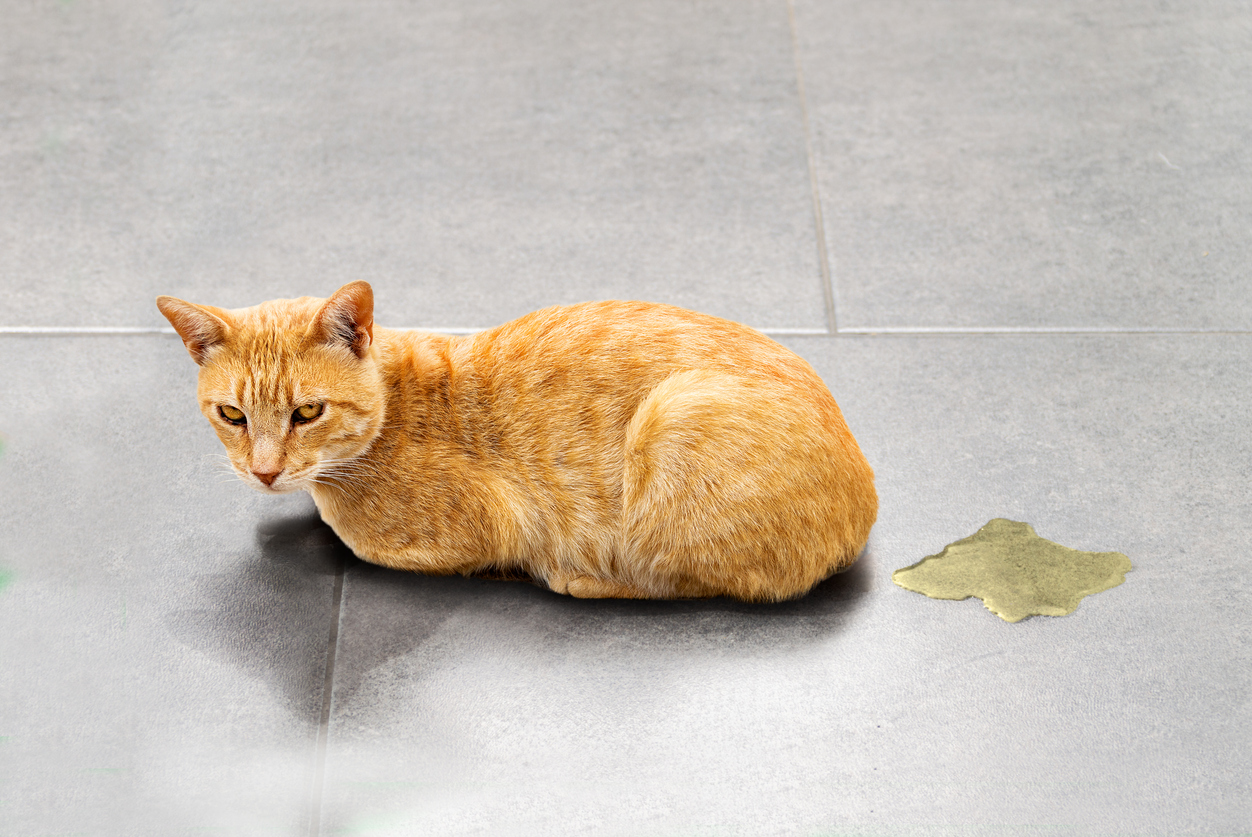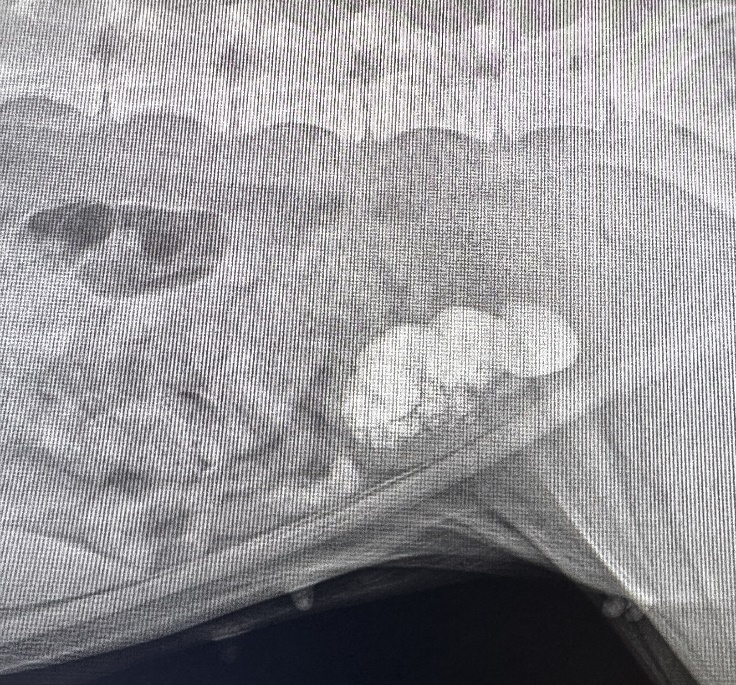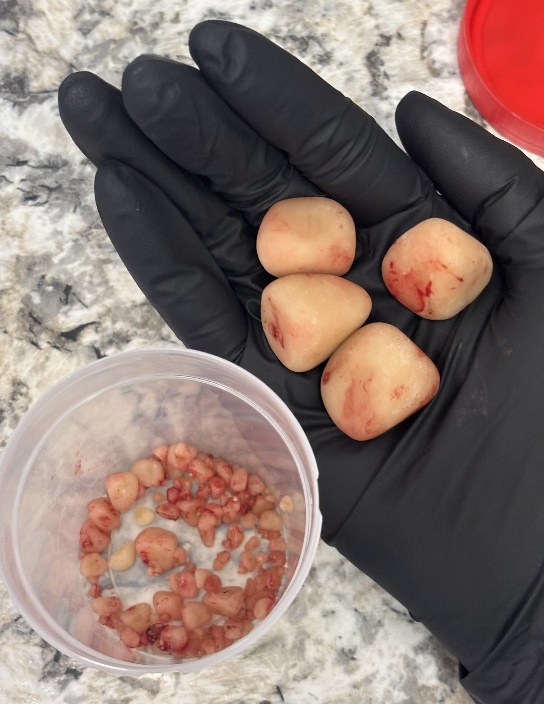Why Is My Cat or Dog Peeing More Than Usual? Signs You Should Not Ignore
At College Hills Veterinary Hospital, we know how quickly you notice changes in your pet’s routine — especially when it comes to bathroom habits. If your dog suddenly needs to go out at night or your cat is making frequent trips to the litter box, it may seem like a minor inconvenience at first. But frequent urination is often a warning sign of an underlying medical condition. Since September is Urology Awareness Month, this is the perfect time to shine a light on your pet’s urinary health and why it matters.
Why Is My Cat Peeing More Than Usual?

Cute cat sitting near wet spot urine puddle
Cats are experts at masking illness, so their bathroom habits are often one of the first red flags. Potential causes include:
- Urinary Tract Infections (UTIs): Bacterial infections that cause pain, inflammation, and frequent urination.
- Bladder Crystals or Stones: Can irritate the bladder and even lead to dangerous blockages.
- Kidney Disease: More common in older cats and often linked to increased thirst and urination.
- Diabetes: Excessive drinking and frequent urination can be early signs.
Warning signs in cats:
- Straining in the litter box
- Vocalizing (crying out) when urinating
- Frequent, unproductive trips to the litter box.
- Blood in the urine (which may look pink, red, or brown, or appear as darker clumps in the litter box).
- Urinating outside the litter box or in unusual places.
- Lethargy or hiding that accompanies bathroom changes
Why Urinary Blockages in Male Cats Are an Emergency
Because male cats have a very narrow urethra, even a small amount of crystals, mucus, or stones can cause a complete blockage. This is a life-threatening emergency within 24–48 hours. Without immediate veterinary care, toxins build up in the bloodstream and can lead to kidney failure or death.
Signs of a blockage in cats: frequent but unproductive litter box trips, crying in pain, producing only drops of urine or blood, sudden lethargy, or refusing food.
Why Is My Dog Peeing More Than Usual?
Dogs can also develop urinary issues that range from minor infections to serious health concerns. Some of the most common reasons include:
- Urinary Tract Infections (UTIs): Just like in cats, bacteria can cause discomfort and frequent urination.
- Bladder Crystals or Stones: May cause painful urination or, in severe cases, blockages.
- Kidney Disease: A common cause of increased thirst and urination in older dogs.
- Diabetes: Excessive drinking and frequent accidents may be early indicators.


Warning signs in dogs:
- Frequent accidents indoors
- Needing to go out during the night
- Pain or straining when urinating (can include whining while urinating)
- Blood in the urine (which may look pink, red, or brown, or appear as spots on bedding or the floor).
- Unusually large or small amounts of urine compared to their normal output.
- Restlessness, pacing, or excessive licking at the urinary area.
Can Dogs Get Urinary Blockages?
Yes. While less common than in cats, male dogs can develop urinary blockages, typically caused by bladder stones lodging in the urethra. This is a true emergency that requires immediate veterinary intervention.
Signs of blockage in dogs: straining with little to no urine, repeated attempts to urinate, blood in the urine, restlessness, or licking at the urinary area.
When to Call the College Hills Veterinary Hospital
If your pet is peeing more than usual, don’t wait to “see if it passes.” Urinary issues can escalate quickly. At College Hills Veterinary Hospital, we may recommend:
- Urinalysis & bloodwork to check for infection, diabetes, or kidney problems.
- X-rays or ultrasound to detect stones or crystals.
- Prescription diets or medications to dissolve stones, manage chronic illness, or fight infection.
- Surgical intervention if urinary blockages are present and we cannot resolve the blockage with other treatments.
Supporting Your Pet’s Urinary Health at Home
While veterinary care is essential for diagnosis and treatment, you can help support urinary health daily:
- Provide fresh water at all times; fountains or wet food can help cats drink more.
- Keep litter boxes and potty areas clean to encourage regular urination.
- Feed a balanced diet; urinary-specific diets may help prevent stones or crystals.
- Schedule routine veterinary checkups for early detection of underlying health issues.
Protecting Your Pet’s Urinary Health in College Station
At College Hills Veterinary Hospital, we know that frequent urination is more than just a messy inconvenience — it’s often a symptom of something serious. From urinary tract infections to kidney disease and life-threatening blockages, these conditions require veterinary attention.
Remember:
- Routine changes (like drinking and peeing more often) should prompt a veterinary exam.
- Emergency signs (straining with no urine, pain, or complete inability to urinate) require immediate care.
Most importantly, never punish your pet for accidents. Inappropriate urination is not misbehavior but a call for help.
By keeping a close eye on your cat or dog’s bathroom habits, you may be the first to catch an illness before it becomes life-threatening. If you notice changes, call College Hills Veterinary Hospital right away — we are here to help keep your pets healthy, comfortable, and safe.
College Hills Veterinary Hospital
209 Dominik Dr
College Station, TX 77840
